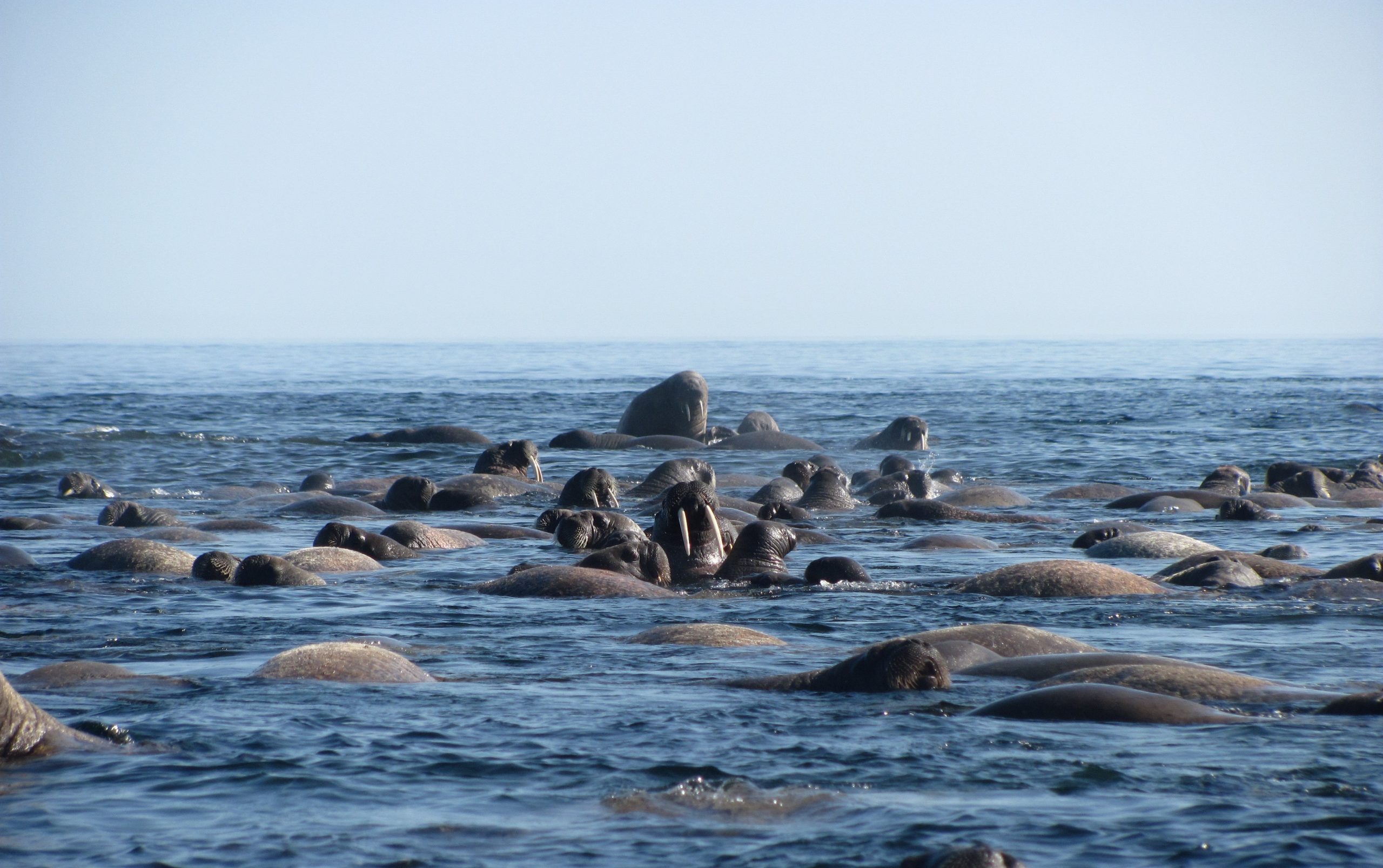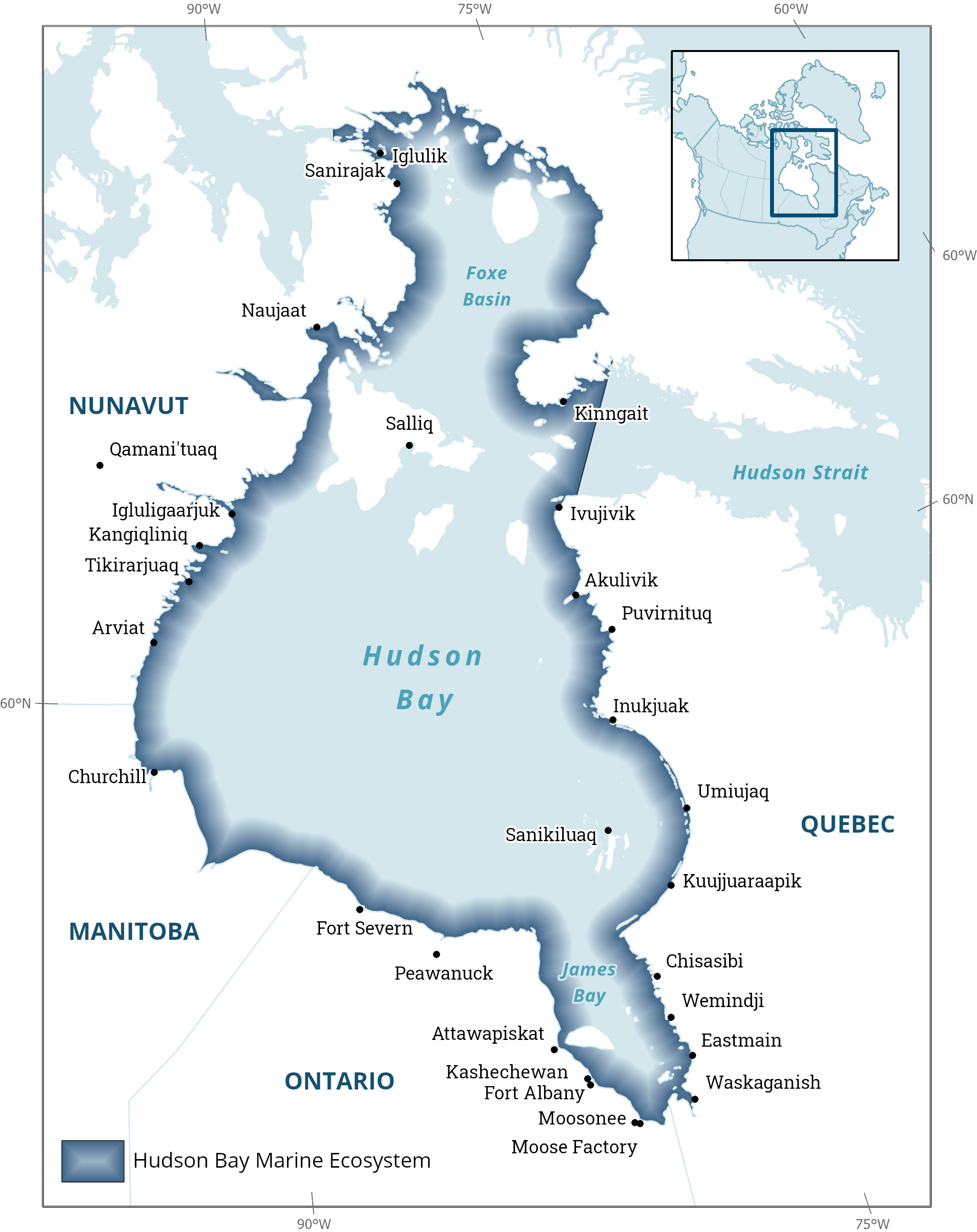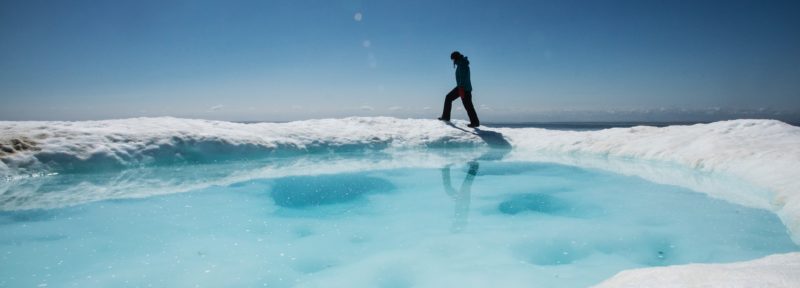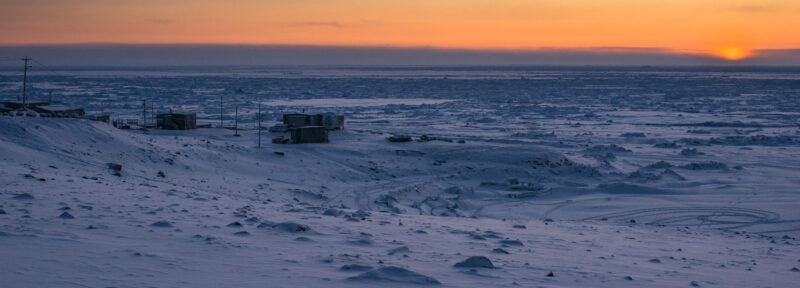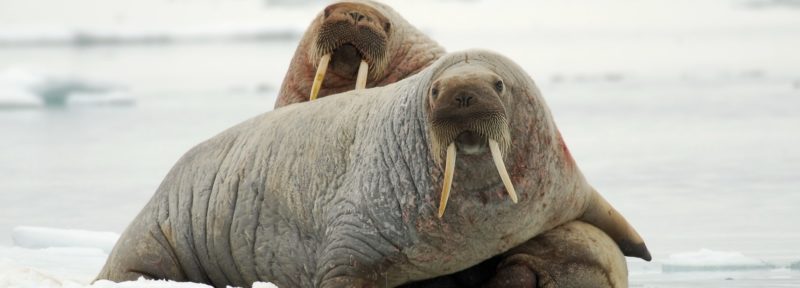New Report Highlights the Seascape at the Heart of Canada
Credit: Oceans North
In the centre of Canada lies the world’s largest seasonally ice-covered inland sea. The heart of Canada’s seascape, the Hudson Bay marine ecosystem is the homeland of twenty-eight First Nations and Inuit communities that live along its coastline. This culturally diverse region also fosters the southernmost populations of polar bears and walrus and is home to a year-round population of beluga whales. The coastlines and islands support thousands of migratory waterfowl and shorebirds during their annual sojourn to breed and feed in the region.
A map of the Hudson Bay marine ecosystem.
Credit: Oceans North
Yet despite its importance for people and wildlife, there is relatively little information on the Hudson Bay marine ecosystem as a whole. In order to better understand the area and make informed management decisions, it’s important to have a holistic picture of it. That is why Oceans North has published a new report that synthesizes existing data about this region and highlights the complexity of both its ecology and its governance.
In total, approximately 900 articles were retrieved and reviewed that covered topics ranging from the implications of climate change to the cumulative impacts of human activity. Both western scientific data and Indigenous Knowledge were reviewed for the report.
The gathered knowledge draws attention to the rich biodiversity and high productivity of the marine and coastal region, emphasizing the need to conserve the Hudson Bay marine ecosystem. The report also delves into the importance of the region for travel and subsistence harvesting by the communities that hunt, fish and gather on its shores and waters.
However, this biologically and culturally rich region is under threat from an array of climate change impacts such as warming temperatures, changing ice conditions, and unpredictable weather. First Nations and Inuit communities along the marine ecosystem have reported that these changes threaten their health and well-being. Some of the consequences include increased travel risks, reduced opportunities for younger generations to engage in on-the-land activities and learn from elders, and impacts on food security.
The region is also particularly vulnerable to changes that result from large-scale industrial activities, notably mining projects and the damming of important rivers for hydroelectricity in Quebec, Ontario, and Manitoba. However, large knowledge gaps remain about how these changes to the natural environment impact the ice, marine food web and local Indigenous communities who rely on the marine ecosystem for their livelihoods.
In light of these findings, it’s clear that monitoring and conserving the Hudson Bay marine ecosystem should be a national priority. Conservation projects led by First Nations and Inuit communities in the region have recently gained additional support from federal and regional governments. These efforts aim to bridge knowledge gaps about coastal and offshore waters and islands, as well as to introduce special protections for the habitat of ecologically and culturally important species such as beluga, polar bear and walrus. The team at Oceans North has partnered with local communities to support a number of these initiatives, including:
-
The creation of a National Marine Conservation Area (NMCA) in western James Bay and southwestern Hudson Bay, led by Mushkegowuk Cree;
- The creation of an Indigenous Protected Area (IPCA) for Arqvilliit (Ottawa Islands Archipelago) and surrounding waters in eastern Hudson Bay, with the community of Inukjuak, Nunavik;
- Community-driven research towards the establishment of a Marine Protected Area around Southampton Island, with the community of Coral Harbour.
Indigenous and local stewardship initiatives are key to safeguarding the heart of Canada’s seascape. Oceans North continues to support research projects in the Hudson Bay marine ecosystem in order to fully understand the rich biodiversity of this region and help preserve the health, economy, and livelihoods of the coastal communities that call this region home.
Maude Durand is Oceans North’s Arctic project specialist.

